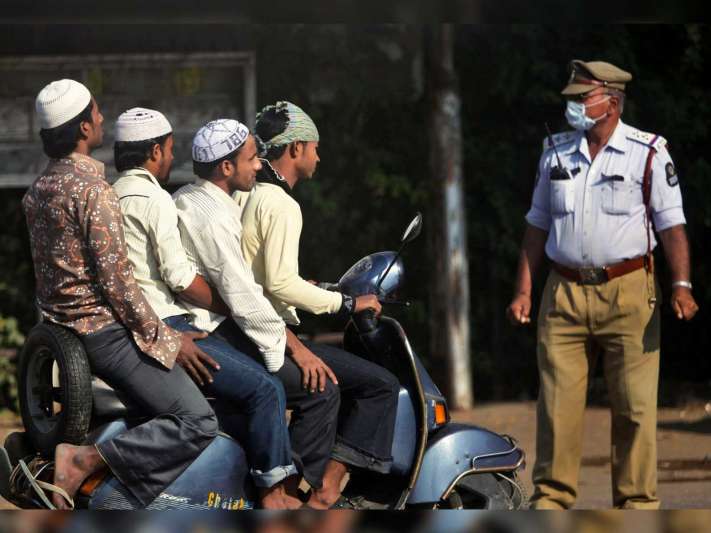Traffic police manning the important intersections in Visakhapatnam for hours on end are prone to lung issues. A study carried out by the Andhra University and Andhra Medical College found decreased lung functionality in the traffic police in the city based on pulmonary function test parameters.
Long term exposure to exhaust fumes from motor vehicles has been linked to the impaired lung function of traffic police. The masks they’re provided with hardly shield them for the emissions as the filters aren’t changed regularly. The rapid growth of the city and the consequential increase in vehicular traffic while contributing to the city’s high pollution levels have also been having a negative effect on the health of the traffic police.
Long-term direct exposure to vehicular emissions have been proved to have a negative effect on the respiratory system. Researchers behind the study are, Scientist (WOS B) Dr A Anuradha and Assistant Professor Dr V Lakshmi Kalpana – Department of Human Genetics, Andhra University and Assistant Professor Dr S Narsinga Rao – Andhra Medical College.
Dr Anuradha and Dr Kalpana had handpicked traffic policemen who have been exposed to vehicular exhaust fumes for more than two years for the study. A cross-sectional study was then conducted to measure the computerised spirometric parameters among 52 traffic police being compared to 47 general duty police. The forced vital capacity was significantly reduced in the traffic personnel suggesting a pattern of lung disease, the study states.
FEV1 (forced expiratory volume in one second) and PEFR (peak expiratory flow rate) tests were reduced in the traffic police, indicating obstructive lung disease. Dr Narsinga Rao stated that there was enough evidence to prove that vehicular pollution causes increased morbidity and mortality. Hence, traffic police were the natural choice for this study, being exposed to constant vehicular pollution with their requirement to be in the midst of heavy traffic.
Although there are a number of health effects that were reported, majority of the studies based on traffic police have been focused on three outcomes – respiratory morbidity, cytogenetic effect and carcinogenic effect. The researchers reportedly opined that the public must be aware and sensitive to the harmful effects of air pollution, with them trying to help at least a little by switching off their engines in traffic signals.
In the study, the researchers have also suggested that the government improve the conditions of the traffic police by making the use of protective equipment – nose, air filter masks or more – mandatory for the traffic police working in heavy traffic junctions.










Discussion about this post